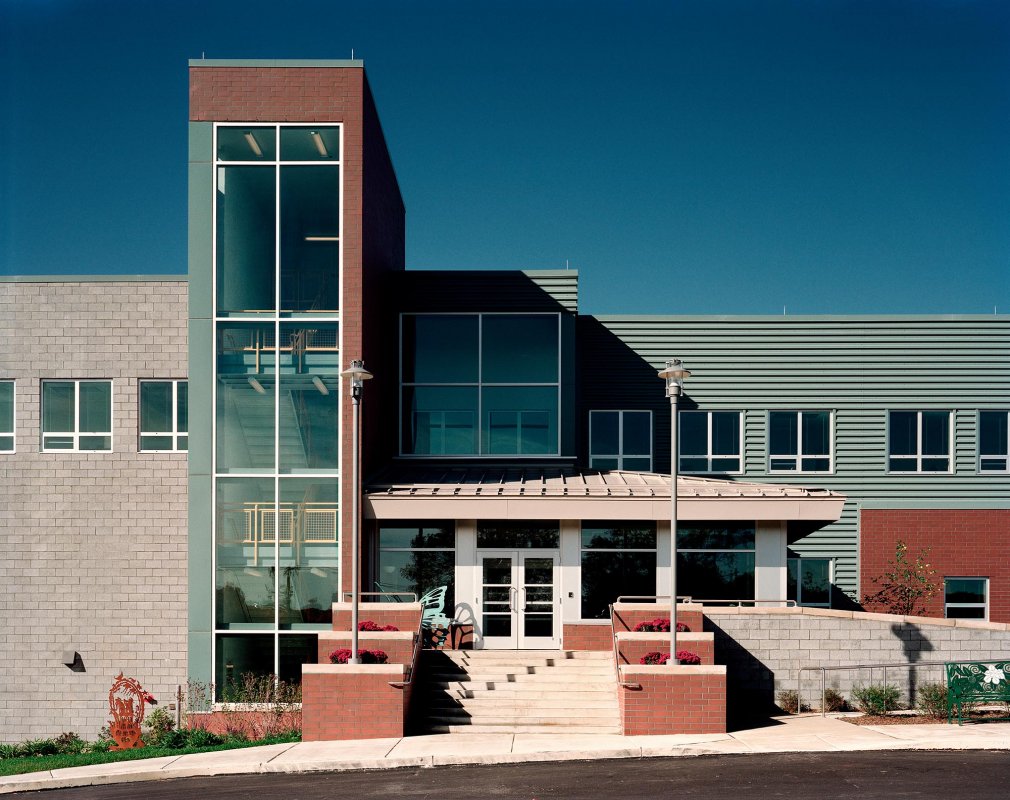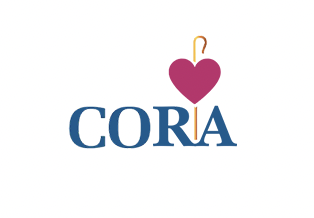CORA Services - Clinical Services Division
Overview
CORA Services - Clinical Services Division is a substance abuse treatment center for people seeking treatment near Philadelphia County. As part of their treatment modalities for recovery, CORA Services - Clinical Services Division provides cognitive behavioral therapy, telemedicine/telehealth therapy, and substance use disorder counseling during treatment. CORA Services - Clinical Services Division is located in Philadelphia, Pennsylvania, accepting cash or self-payment for treatment.
CORA Services - Clinical Services Division at a Glance
Payment Options
- Cash or self-payment
- Medicaid
- Private health insurance
- Federal, or any government funding for substance use treatment programs
- Sliding fee scale (fee is based on income and other factors)
Assessments
- Screening for tobacco use
- Comprehensive mental health assessment
- Comprehensive substance use assessment
- Interim services for clients
- Outreach to persons in the community
Age Groups
- Adolescents
- Seniors
Ancillary Services
- Case management service
- Integrated primary care services
- Mental health services
- Social skills development
- Transportation assistance
Treatment At CORA Services - Clinical Services Division

Conditions Treated
Alcoholism:
Alcohol addiction is a health problem where drinking takes control over a person's life. It affects how their brain thinks and acts, leading to strong desires to drink, bad feelings, sudden actions, and discomfort when not drinking. To help someone with this problem, there are treatments like detox, counseling, group support, and learning coping methods. While treatment can't completely cure the urge to drink, it helps people regain control of their lives and feel better overall.
Substance use treatment:
Substance use rehabilitation represents a holistic treatment strategy tailored to aid individuals grappling with drug or alcohol addiction. This comprehensive rehabilitation method encompasses two key aspects: first, addressing the physical dependency, often commencing with detoxification, and second, tackling the psychological triggers through a range of therapeutic techniques. The ultimate aim is to empower individuals to attain and sustain sobriety while providing them with the necessary skills and coping mechanisms to successfully reintegrate into society and lead a life free from substance abuse.

Levels Of Care
Outpatient:
Outpatient treatment in a rehab center offers flexible therapy sessions, typically ranging from 1-3 hours per week, allowing individuals to continue daily activities while receiving care. In contrast, intensive outpatient programs demand a more rigorous commitment, often involving 9-15 hours weekly, providing a more immersive therapeutic environment without the need for inpatient stays.
Regular outpatient treatment:
Regular Outpatient Treatment is a flexible and accessible option for individuals seeking recovery from addiction or substance abuse. This program typically involves attending therapy and counseling sessions on a part-time basis, often ranging from one to three sessions per week. These sessions are designed to provide essential support, guidance, and tools for individuals to overcome addiction, manage cravings, and work towards a healthier, sober lifestyle. Regular Outpatient Treatment offers the advantage of maintaining daily routines and responsibilities while receiving the necessary therapeutic interventions to foster lasting recovery.
Aftercare:
Aftercare refers to the structured support and programs offered to individuals after completing an initial treatment phase for substance abuse or other disorders. Recognizing that recovery is an ongoing process, aftercare provides continued counseling, skill-building, group therapy, and resources to help individuals maintain sobriety, manage triggers, and reintegrate into daily life, reducing the risk of relapse and ensuring long-term success in recovery.

Treatment Modalities
Cognitive behavioral therapy:
Cognitive Behavioral Therapy (CBT) is a form of psychotherapy that emphasizes the critical role of thinking in how we feel and what we do. It aims to identify and challenge distorted or negative thought patterns and behaviors, teaching individuals to replace them with more constructive and rational beliefs. CBT is evidence-based and has been shown to be effective in treating a variety of psychological disorders, including depression, anxiety, and phobias, among others.
Telemedicine/telehealth therapy:
Telehealth provides a secure and handy way to access behavioral health care from your home. It eliminates the need for travel, time off work, or organizing childcare. A range of services, including individual therapy, group sessions, and monitoring for anxiety and depression, are available remotely. Rest assured, telehealth video sessions are not recorded, ensuring your information remains as confidential as in-person consultations.
Substance use disorder counseling:
Substance use disorder counseling treatment modalities refer to various approaches and methods used in the counseling and treatment of individuals with substance use problems. This can include individual therapy, group therapy, cognitive behavioral therapy, motivational interviewing, family therapy, and 12-step programs. The goal is to help the individual overcome their substance use, develop healthy coping skills, and lead a fulfilling life in recovery.
Trauma-related counseling:
Trauma therapy addresses the underlying emotional and psychological wounds that may contribute to an individual's substance abuse. Through a combination of psychotherapy and coping strategies, individuals are aided in processing past traumatic experiences, understanding the impact of trauma on their current behavior, and developing healthier coping mechanisms. This holistic approach fosters resilience, aids in the resolution of trauma, and is fundamental in supporting individuals on their path toward sustained recovery from addiction.
Smoking/vaping/tobacco cessation counseling:
Tobacco cessation counseling encompasses discussions with a counselor regarding your tobacco or vape usage and its integration into your daily routine, with the goal of devising a strategy to quit. This service caters to individuals desiring to quit tobacco, offering interventions like behavioral support or counseling in groups or one-on-one settings. The counseling sessions may range from brief encounters (under 5 minutes) to more intensive discussions (exceeding 10 minutes) and may necessitate multiple sessions.
Group counseling:
Group Therapy is a therapeutic space where individuals battling addiction come together to share experiences, gain insights, and support one another on their journey to recovery. Facilitated by trained professionals, this setting fosters communal healing and empowers participants to overcome the challenges of addiction through collective strength and understanding.
Family counseling:
Family Counseling is a therapeutic approach that seeks to address and resolve conflicts, improve communication, and strengthen relationships within the family unit. By providing a safe space for family members to express their feelings and concerns, a trained counselor facilitates understanding and collaboration among members, promoting healthier dynamics and enhancing overall family well-being.
Marital/couples counseling:
Marital/couples counseling treatment modalities refer to various therapeutic approaches used to help couples resolve conflicts, improve communication, and strengthen their relationship. These modalities can include cognitive-behavioral therapy, emotionally focused therapy, solution-focused therapy, and integrative approaches. The goal of these treatments is to help couples identify and address underlying issues and develop healthy relationship dynamics.
Contingency management/motivational incentives:
Contingency management and motivational incentives are evidence-based treatment modalities used in addiction and behavioral health programs. Contingency management involves the use of rewards to reinforce positive behaviors and change negative behaviors, while motivational incentives provide incentives to engage in treatment and sustain recovery. Both approaches are designed to increase motivation and engagement in treatment and have been shown to be effective in promoting positive outcomes.
Motivational interviewing:
Motivational Interviewing (MI) in addiction treatment is a client-centered counseling style aimed at promoting behavior change by helping clients explore and resolve ambivalence. Through empathetic engagement and evoking change talk, MI empowers individuals to harness their own motivation to overcome addiction, leading to a self-directed path to recovery. This approach respects individual autonomy while supporting positive change in a compassionate, non-confrontational manner.
Anger management:
"Anger Management" refers to a set of therapeutic techniques and exercises that help individuals recognize the signs of their growing anger and take action to calm down and deal with situations in a constructive manner. It aims to reduce both emotional feelings and the physiological arousal that anger can cause, ensuring that anger does not lead to aggressive outbursts or other harmful actions. Individuals can navigate tense situations with more remarkable composure and control by understanding triggers and developing healthy coping strategies.
Relapse prevention:
The Relapse Prevention Model is a therapeutic approach designed to equip individuals with strategies and tools to anticipate and cope with potential relapses, especially during the recovery from addictive behaviors or other maladaptive habits. Drawing on cognitive-behavioral techniques, it emphasizes the identification of high-risk situations, developing coping mechanisms, and enhancing self-efficacy. This model fosters long-term behavior change by helping individuals recognize early warning signs of relapse and empowering them to take proactive steps to maintain their recovery.
Intervention Services:
"Intervention" refers to a deliberate action or set of actions taken to directly address and alter a specific situation or behavior. Often used in contexts like medicine, psychology, and social work, interventions are designed to prompt positive change, whether it's to prevent harm, improve health, or enhance the quality of life. They can range from medical procedures to address health issues, to structured meetings aimed at helping individuals combat addiction or destructive behaviors.
Individual psychotherapy:
In individual therapy, a person engages in a one-on-one session with a qualified therapist or counselor. This therapeutic approach is crucial in successful substance abuse treatment because it delves into the underlying causes of addiction, addressing issues the individual may encounter in their familial, social, and professional or academic environments.
Ancillary Services
Special Programs
- Clients who have experienced trauma
Contact Information
DISCLAIMER: The facility name, logo and brand are the property and registered trademarks of CORA Services - Clinical Services Division, and are being used for identification and informational purposes only. Use of these names, logos and brands shall not imply endorsement. BetterAddictionCare.com is not affiliated with or sponsored by CORA Services - Clinical Services Division.


